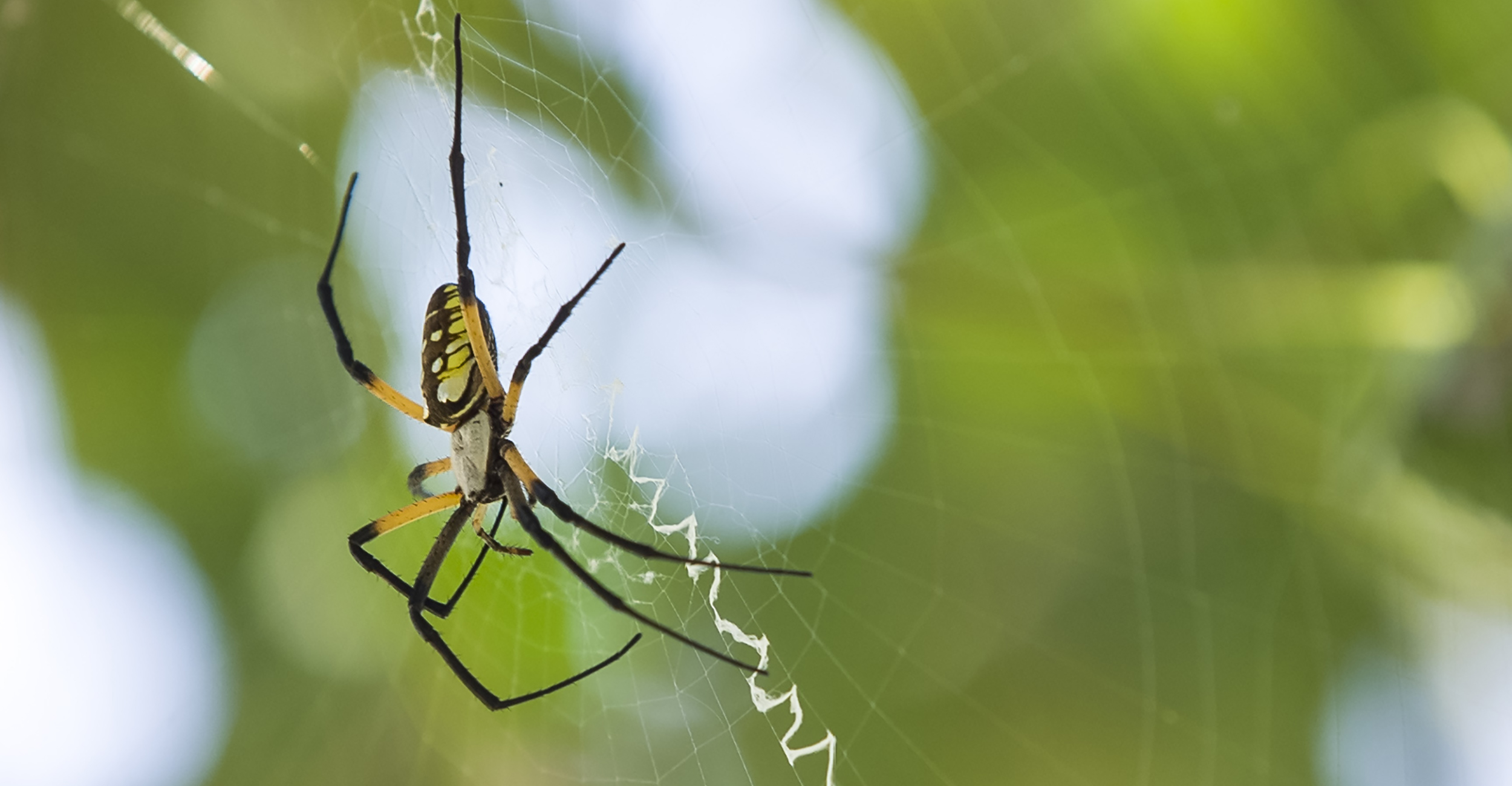
Spiders are scary but avoidable
Wednesday, October 13, 2021
Media Contact: Brian Brus | Agricultural Communications Services | 405-744-6792 | BBrus@okstate.edu
As Oklahomans pull end-of-year holiday decorations out of the attic and put away tools in sheds, they may end up disturbing some of their smallest neighbors.
Exclamations of surprise will be uttered. Bites might be delivered. Squashing, unfortunately, happens too often.
Andrine Shufran, Oklahoma State University Extension associate specialist with the OSU Department of Entomology and Plant Pathology, said human-spider interactions don't need to be so dramatic. In Oklahoma, only two spiders are considered dangerous to people: the brown recluse and black widow. Their relatives — tarantulas, wolf spiders, jumping spiders and others — only look scary, with bites that are less harmful than bee stings.
“We notice them more at this time of year partly because they’ve gotten larger at the end of their lifecycles, and they might be protecting egg sacs,” said Shufran, who is also director of the Insect Adventure program. “They’re also like us in a certain way: Many are preparing for winter, looking for food, water and shelter, which might be inside our homes.”
Shufran offered some helpful tips:
- The brown recluse, or fiddleback, is less than an inch long and light tan to dark brown. It rests during the day in dark spaces such as in baseboards, crevices and piles of clothes. It normally only bites when physical pressure is applied, such as when people put on shoes, roll over in bed or reach behind cabinets.
- The black widow is obvious by its red hourglass marking, measuring more than an inch with legs spread. It tends to cast webs around piles of debris, under low-growing shrubs, in boxes and utility housings.
- Unlike brown recluses, which aren’t designed to make it through winter, black widows may remain active in sheltered environments all year long.
- If bitten, relieve swelling and pain by applying an ice pack or alcohol directly to the injury. If the bite causes a severe reaction – particularly from a brown recluse or black widow – consult a physician immediately.
- Spiders overall would prefer to be left alone so they can eat other insects that bother people.
Regular maintenance is key to keeping spiders away: They don’t like frequent cleaning in closets, cellars and other potential hiding spots. Shufran also suggested commercially available paper sticky traps.
“It’s hard for people to appreciate this, but spiders are good – they protect our fruits and vegetables,” Shufran said. “By comparison, butterflies and moths are bad – they’re responsible for eating a large portion of our crops.”
OSU Extension provides a fact sheet for dealing with Oklahoma’s spiders, as well as information on related pests.
A video feature about spiders is available online at SUNUP, the award-winning agricultural television show produced by OSU Agriculture.
